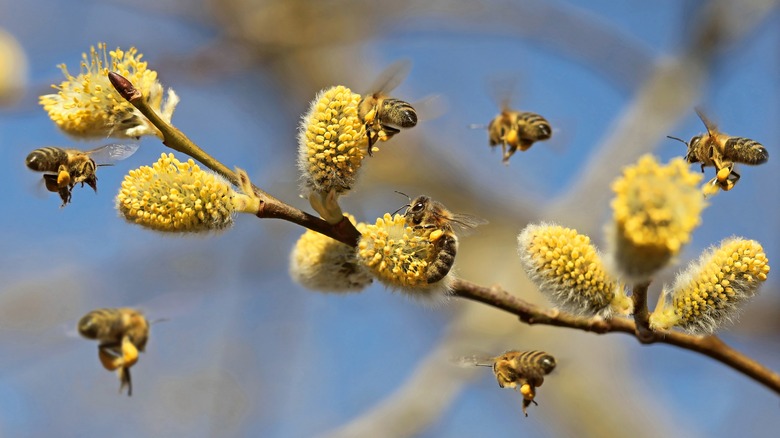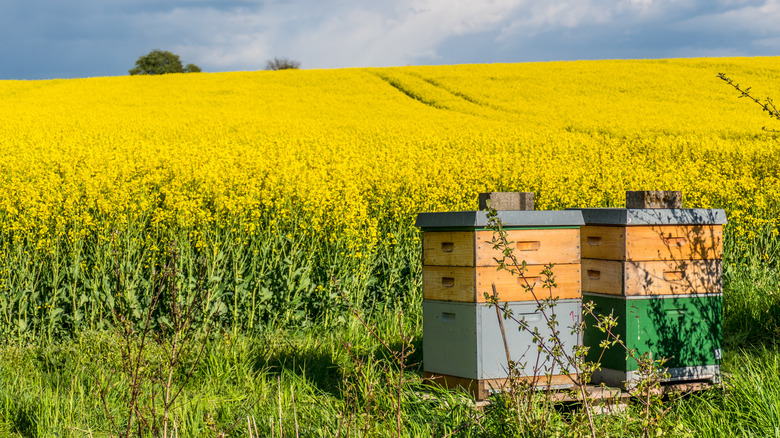New Study Shows Bees May Be The Answer To Preventing Future Food Crises
According to the United Nations, 75% of global food crops, along with 35% of the land used to grow them, are dependent on the work of nature's pollinators. Species such as bees, butterflies, and birds play a vital role in the world's food security (via U.S. Forest Service), however, intensive farming practices like mono-cropping and pesticide use, paired with increasing global temperatures due to climate change, have multiplied their extinction rates up 1,000 times higher than normal (via United Nations). As the pattern persists, not only do animal pollinators face global extinction but so does the quality of our food.
While the benefits that animal pollinators pose for crop yields are well known, there has been little exploration of their effect on crop stability — until now. Scientists at the University of Reading analyzed and combined the results of more than 200 experiments to compare the stability of crop yields with, and without, animal pollination (via Phys). The 2022 study suggests there could be a mutually beneficial relationship between farmers and pollinators; one that simultaneously reduces agriculture's environmental impact and the associated costs, all while closing gaps, improving yields, and stabilizing the world's food supply.
Pollinators and crop yield stability
Published in the journal "Ecology Letters," the study, tested the influence animal pollination has on the stability of three globally representative crops — faba beans, oilseed rapes, and apples. Across both individual plants as well as fields, the scientists found that the stability of crop yields increased by 32% when bees and other pollinators were in attendance. This stabilization is believed to be caused by something Phys identifies as a "ceiling effect," where the overall benefits of pollinators are constrained due to the restrictions found across other resources such as the amount of nutrients in the soil, and the crops accessibility to water.
The new study also found that stabilization was the most significant across plants and fields where the yield benefits of animal pollination were the highest — showing that the management of crop pollination has the potential to not only increase crop yields but also crop stability; further justifying the protection of our friendly neighborhood pollinators. The leader of the study, Dr. Jake Bishop, told Phys that the research "revealed another reason why pollinators are so important to our planet and to so many families who are struggling to feed themselves with sufficient, safe and nutritious food."
The findings come at a time when food prices continue to surge, both thanks to climate change and the ongoing conflicts between Russia and Ukraine (via Bloomberg), to show that pollinators could be the key to avoiding any future repeats of history by steadying food prices through the stabilization of global food crop supplies.

